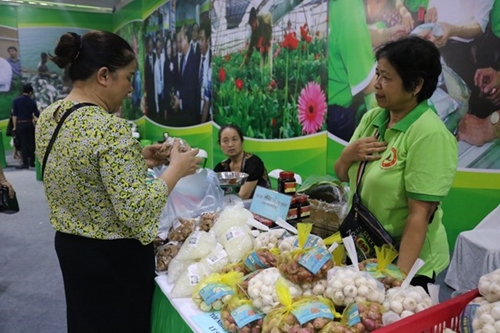According to the local coordinating office for new-style countryside building, Hanoi classified 301 products last year, including six rated five stars, 207 others four stars, and 88 three stars. The city also stepped up promoting OCOP products, thus helping to improve consumers’ recognition of and trust in local goods.
During the first half of 2020, it has continued to enhance communication about the OCOP program and issued temporary guidance on the management and use of OCOP marks and star ratings on labels and packages of products with at least three stars in the program.
    |
 |
|
Garlics and shallots introduced at the recent show of Hanoi's OCOP products |
Meanwhile, local districts and towns have also selected products for classification at the district level.
Hanoi aims to rate about 800 – 1,000 OCOP products by the end of this year.
Addressing a recent show of local OCOP products, Director of the municipal Department of Agriculture and Rural Development Chu Phu My said the OCOP program has created a fair platform for healthy competition among producers and for craft villages to bring into play their potential values.
It has also created stable jobs and helped raise laborers’ income, thus practically contributing to the implementation of the national target program for new-style rural area building. OCOP producers have also gained chances to improve their knowledge of business laws and have open dialogue with partners and State agencies, he noted.
Last year, Hanoi announced it would spend VND 265 billion (USD 11.4 million) on implementing the local OCOP program for the 2019 – 2020 period.
The OCOP was initiated by the Ministry of Agriculture and Rural Development in 2008, following the model of Japan’s “One Village, One Product” and Thailand’s “One Town, One Product.” It is an economic development program for rural areas focusing on increasing internal power and values, which is also meant to help with the national target program on new-style rural area building.
Source: VNA